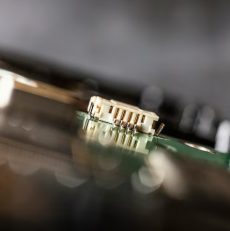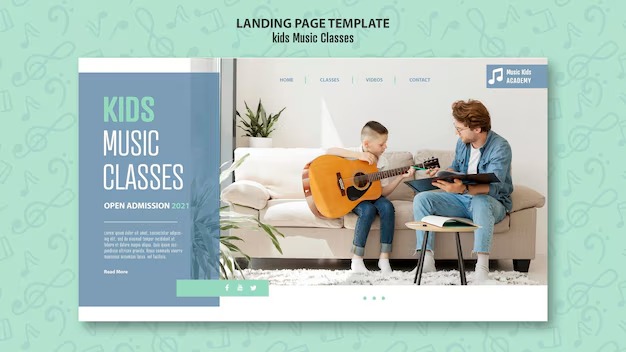
23 December 2024
Exploring the Depths of Benjamin Britten the Turn of the Screw Operas

In today’s dynamic landscape, where creativity and skill intersect, individuals pursuing a career in sound composition and performance find themselves at a pivotal juncture. This journey, marked by challenges and aspirations, can be significantly enhanced through specialized instruction and training.
As talents are nurtured and refined, one can unlock a myriad of opportunities that extend beyond mere proficiency in playing instruments or vocal performance. Engaging in a structured program offers not only technical mastery but also fosters a deeper understanding of theoretical foundations and cultural contexts.
Moreover, collaboration with peers and mentors creates an enriching environment that stimulates growth and innovation. Immersing oneself in a community of like-minded individuals promotes motivation and inspires experimentation, ultimately leading to a more profound connection with the art form.
Formal schooling in the realm of sound has a significant impact on skill development and artistic expression. This structured approach enhances not only technical abilities but also provides insights into music theory, composition, and performance practices. Engaging in this kind of training fosters a deeper understanding of various genres and styles, enriching a musician’s creativity and versatility.
The influence of formal training extends beyond immediate skills. Artists equipped with a solid educational background are often better prepared to navigate the complexities of the music industry. Critical thinking, creativity, and adaptability are cultivated through rigorous study, enhancing one’s ability to innovate and collaborate. Ultimately, individuals who undergo this form of training are more likely to sustain enduring careers and contribute meaningfully to the artistic landscape.
In the realm of artistry, cultivating a diverse array of competencies is vital for individuals aiming to excel in their craft. These abilities not only enhance performance potential but also contribute to overall musicianship, enabling practitioners to express creativity and connect with audiences. A comprehensive approach to learning can significantly enrich one’s skill set, fostering growth and innovation in a competitive environment.
Numerous essential attributes can be developed through focused practice and guided instruction. These skills encompass technical proficiency, creativity, and interpersonal communication, all of which play critical roles in achieving success within this dynamic field.
| Skill | Description | Importance |
|---|---|---|
| Technical Prowess | Mastering instrument techniques and musical notation. | Foundation for all performances. |
| Listening Skills | Ability to critically analyze sound and elements of music. | Enhances collaborative practices. |
| Creativity | Innovative thinking in composition and arrangement. | Vital for original expression. |
| Collaboration | Working effectively with other artists. | Enriches artistic experience. |
Developing a holistic skill set involves engaging in various activities such as practice sessions, workshops, and performances. By embracing a wide range of experiences, individuals can refine their abilities and broaden their artistic perspectives. This journey not only equips them with essential tools but also nurtures a deeper appreciation for artistry as a whole.
Building connections within creative fields is crucial for artists seeking to advance their careers. Establishing relationships with industry professionals can open numerous doors, facilitating collaborations, performances, and exposure to various platforms. In this dynamic environment, networking serves as a vital tool for personal and professional growth.
Participating in events such as workshops, showcase festivals, and conferences offers invaluable chances for artists to meet influential figures and like-minded peers. These gatherings foster an atmosphere where exchanging ideas becomes effortless, allowing musicians to learn from each other’s experiences. Additionally, engaging in social media communities tailored to the industry can expand one’s reach beyond local connections into global networks.
Collaborative projects often arise from personal relationships nurtured during networking opportunities. Joining forces with fellow artists or producers can lead to innovative works that gain traction in the competitive market. Moreover, established professionals can serve as mentors, providing guidance and insights that are crucial for navigating challenges within the field.
In essence, cultivating professional connections not only encourages creativity but also fosters a sense of community within the art scene. Musicians who actively engage in networking are more likely to discover unique opportunities that contribute to a successful and fulfilling career.
The influence of structured learning on artistic manifestation is profound. Engaging in systematic study not only enhances technical skills but also nurtures the originality of an individual’s artistic voice. By immersing oneself in a rich environment of theory and practice, creators can unlock new perspectives and refine their unique style.
Formal training provides essential foundations that enrich creative processes. Some crucial aspects include:
Such elements contribute to a more comprehensive approach to artistry, allowing performers to express complex emotions and ideas through their work.
In a structured setting, individuals are encouraged to experiment and innovate. This supportive atmosphere fosters:
Ultimately, a solid foundation in knowledge and practice empowers creators to push boundaries and shape their artistic narratives, leading to powerful and resonant forms of expression.
Having a wealth of tools and infrastructure at one’s fingertips significantly enhances the journey towards artistic mastery. This support system plays a crucial role in developing skills, fostering creativity, and providing essential experiences that shape a performer’s career.
Institutions typically offer an extensive array of resources that assist individuals in honing their craft. These materials may include:
Furthermore, well-equipped venues and practice spaces are essential for comprehensive development. Key features may encompass:
Overall, the availability of diverse materials and top-notch environments cultivates a foundation for growth and innovation in every artist’s path.
Numerous opportunities await individuals who complete programs in the field of sound and performance arts. This arena offers a variety of roles that cater to diverse interests and skills, facilitating professional growth and personal satisfaction. Graduates can find fulfilling positions in multiple sectors, ranging from educational institutions to entertainment platforms, each contributing uniquely to the cultural landscape.
Many graduates choose to pursue conventional paths, such as becoming performers, educators, or composers. These roles often involve sharing knowledge, engaging with audiences, and creating original works that resonate with listeners. Embracing these responsibilities can set the foundation for a rewarding career.
In addition to typical jobs, there are numerous alternative avenues available. Graduates can explore roles in areas such as music production, sound engineering, or music therapy. Each of these fields presents unique challenges and rewards, allowing individuals to leverage their artistic skills in innovative ways.
| Career Path | Description |
|---|---|
| Performer | Engaging in live shows, concerts, and recordings as a solo artist or part of an ensemble. |
| Educator | Teaching music theory, instrument skills, and performance techniques in schools or private institutions. |
| Composer | Creating original pieces for various mediums, including films, theater, or commercial advertisements. |
| Music Producer | Overseeing the recording process, guiding artists, and shaping sound in studios. |
| Sound Engineer | Managing audio equipment and ensuring high-quality sound during recordings or live events. |
| Music Therapist | Utilizing music to support emotional and psychological healing in various therapeutic settings. |
Higher education provides musicians with advanced training, exposure to diverse musical styles, and networking opportunities that are crucial for successful careers in the music industry.
A school of music offers structured programs that include performance opportunities, theoretical knowledge, and mentorship from experienced faculty, helping students refine their skills.
The curriculum of a school of music often includes classical, jazz, and popular music, allowing students to explore various genres and find their unique musical voice.
Pedagogy is integrated into music education through courses that teach future educators effective methods for teaching music, ensuring they can pass on their knowledge effectively.
A music pedagogy program typically includes coursework on teaching methods, curriculum development, assessment strategies, and practical teaching experiences in various settings.
An orchestra provides a collaborative setting where students can apply their skills, learn from peers and conductors, and gain experience in ensemble playing, which is vital for their development.
Popular music studies in higher education highlight the cultural impact of contemporary music, offering students insights into industry practices, songwriting, and performance techniques relevant to today’s music scene.
Pedagogical approaches may vary based on the institution’s focus, whether it be classical training or contemporary styles, affecting how curriculum is designed and delivered to students.
The curriculum for aspiring music educators emphasizes skills such as lesson planning, classroom management, effective communication, and the ability to adapt teaching methods to diverse learning styles.
Orchestras often collaborate with schools of music through guest artist residencies, workshops, and performance opportunities, enriching the educational experience for students and providing real-world insights.
Attending higher music education institutions provides students with access to experienced faculty, advanced coursework, and performance opportunities, enhancing their skills in music making and preparing them for careers as music teachers or professional performers.
A degree in music equips students with a deep understanding of music history, performance techniques, and theoretical knowledge, which are crucial for success in classical music and other genres.
Making music is central to the education of music students, as it fosters creativity, collaboration, and practical skills necessary for their development as musicians and educators.
Students can expect a well-rounded curriculum that includes performance, music theory, pedagogy, and opportunities for ensemble work, which prepares them for diverse careers in the music field.
A degree in music education combines coursework in pedagogy and practical teaching experiences, empowering students to become effective music teachers who can inspire and educate future generations.
Popular music education provides students with insights into contemporary music trends and industry practices, preparing them for careers in various aspects of popular music making and performance.
Music technology courses equip students with essential skills in recording, production, and digital media, which are increasingly valuable in today’s job market for music professionals.
Pedagogical approaches at conservatories may include experiential learning, reflective practice, and case studies, allowing students to engage deeply with both performance and teaching methodologies.
Participating in choirs allows music students to improve their vocal skills, experience ensemble work, and develop important social skills through collaboration with peers.
Graduate students in musicology faced challenges such as limited access to resources, disruptions to traditional coursework, and difficulties in conducting research or engaging in collaborative projects due to pandemic restrictions.
Leave a comment